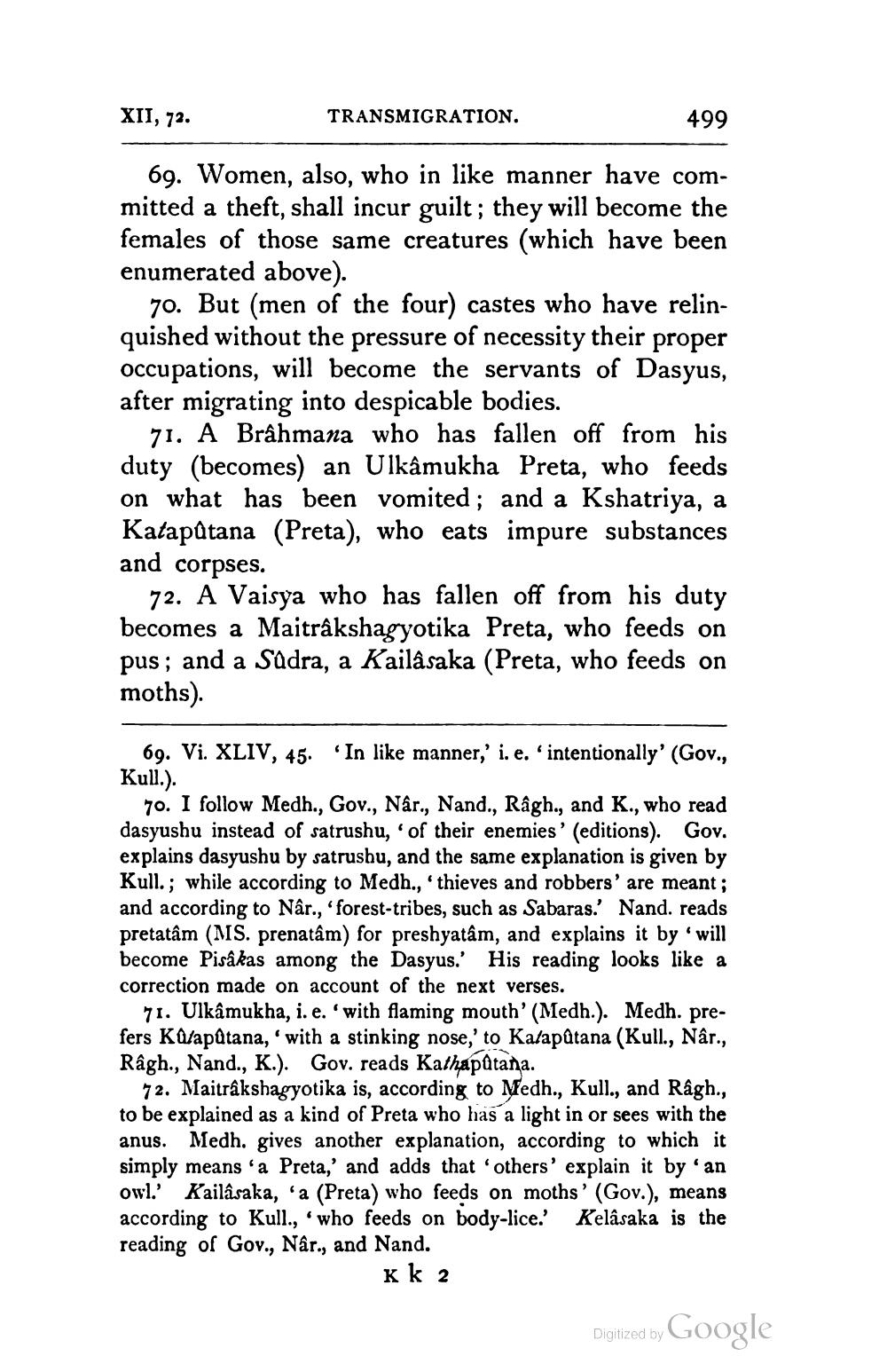________________
XII, 72.
TRANSMIGRATION.
499
69. Women, also, who in like manner have committed a theft, shall incur guilt; they will become the females of those same creatures (which have been enumerated above).
70. But (men of the four) castes who have relinquished without the pressure of necessity their proper occupations, will become the servants of Dasyus, after migrating into despicable bodies.
71. A Brâhmana who has fallen off from his duty (becomes) an Ulkâmukha Preta, who feeds on what has been vomited; and a Kshatriya, a Katapatana (Preta), who eats impure substances and corpses.
72. A Vaisya who has fallen off from his duty becomes a Maitrâkshagyotika Preta, who feeds on pus; and a Sudra, a Kailâ saka (Preta, who feeds on moths).
69. Vi. XLIV, 45. 'In like manner,' i. e. 'intentionally' (Gov., Kull.).
70. I follow Medh., Gov., Nár., Nand., Râgh., and K., who read dasyushu instead of satrushu, 'of their enemies' (editions). Gov. explains dasyushu by satrushu, and the same explanation is given by Kull. ; while according to Medh., 'thieves and robbers' are meant; and according to Nâr., 'forest-tribes, such as Sabaras.' Nand. reads pretatâm (MS. prenatâm) for preshyatâm, and explains it by will become Pisakas among the Dasyus.' His reading looks like a correction made on account of the next verses.
71. Ulkamukha, i.e. 'with flaming mouth' (Medh.). Medh. prefers KQlapatana,' with a stinking nose,' to Kalapútana (Kull., Nár., Râgh., Nand., K.). Gov. reads Kathapatana.
72. Maitrâkshagyotika is, according to Medh., Kull., and Râgh., to be explained as a kind of Preta who has a light in or sees with the anus. Medh. gives another explanation, according to which it simply means 'a Preta,' and adds that 'others' explain it by 'an owl.' Kailâsaka, 'a (Preta) who feeds on moths' (Gov.), means according to Kull., 'who feeds on body-lice. Kelâsaka is the reading of Gov., Nár., and Nand.
Kk 2
Digitized by Google




